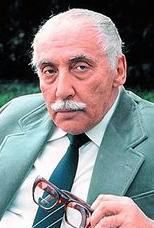布拉格之夜
(1969)
评分:
-
音画
0.0分 / 0人
-
表演
0.0分 / 0人
-
剧情
0.0分 / 0人
The Nights of Prague
- 编辑
- 主演:MilenaDvorská/米洛斯·科佩基/JiríHrzán/MartinRuzek/JanKlusák/TeresaTuszynska/约瑟夫·阿布汉姆/VáclavKotva更多
- 类型:剧情/科幻/恐怖 制片地区:Czechoslovakia 影乐酷ID:5052782dv IMDB:tt0064837
- 语言:捷克语 片长:96min
-
简介:It is not altogether accurate to call Jiří Brdečka an animator. That is, of course, what he was—but the breadth of his other interests is impressive: he was also a draughtsman, film critic, novelist, scriptwriter, and film director. In 1940 he worked as a film critic for Lidové Noviny (later known as Svobodné). For two years he worked on publicity for Lucernafilm, and in 1943 he studied animation at the AFIT Special Effects Studio. Soon after that, he did the animation of an octopus in the animated film Wedding in the Coral Sea, the first film of the future Bratri Triku Studio, which he joined after the war. He returned to animated film and collaborated with Trnka on the scripts for such films as The Gift, The Springer and the SS-Men, The Emperor's Nightingale, The Song of the Prairie, Old Czech Legends, Why UNESCO?, and A Midsummer Night's Dream. With Pojar he collaborated on A Drop Too Much, Fame, and Bombománie. During a career that lasted almost 40 years, he also collaborated on the scripts for a number of feature, live-action films, including The Emperor's Baker and the Baker's Emperor (with Fric); Wolf Trap (with Jiri Weiss); That Cat (with Vojtěch Jasny); and Lost People (Miloš Makovec). He also adapted his own novel for Oldrich Lipsky's film Lemonade Joe. In 1947 Brdečka made his debut as a director of animated films, with Love and the Zeppelin, visually inspired by Art Nouveau. In this film he lovingly and humorously portrays the world of discoverers, inventors and pioneers of science. He returned to this theme on two more occasions, with the films How Man Learned to Fly and Man Under Water, which involve some of the most demanding material ever attempted by an animated film—particularly the sketch "Wisdom and Teaching." As J. Bocek has commented: "This animated ballet captures a philosophical debate between the author and the audience. The conflict between reason and feeling reflects nothing less than the basic issues of life and worldliness." The Grotesque Chicken is Brdečka's most famous film: it is his artistic declaration of faith in the imagination and in creativity. Many of his other films have their origin in a visual inspiration transformed into the grotesque—for example, Why Do You Smile, Mona Lisa? In others, particularly those inspired by music, Brdecka was attempting to impose on the serious, the tragic, and the lyrical his own touch of humour. Brdečka was the kind of intellectual filmmaker, rich in inventiveness, who fully mastered all the elements of cinematography. He portrayed with both cunning and a gentle irony the history of inventions, philosophical essays, folk songs, myths, and fairy tales. Above all, he was the consummate story-teller who was able to transform his visual, literary, and musical inspirations into individualistic works of art. He brought new ideas and new expressive means to both the animated and the feature film.




